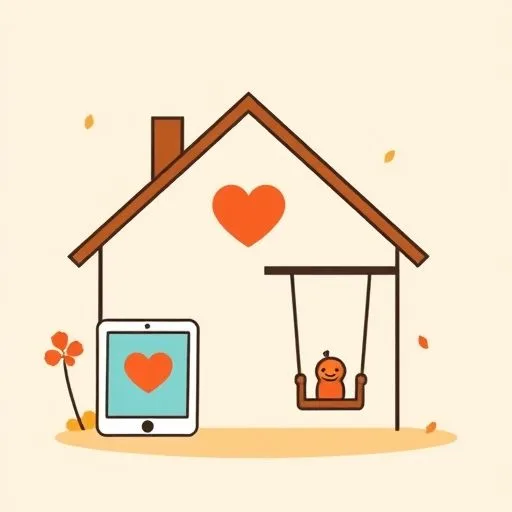
Ever watch her scroll through endless ideas for rainy-day activities with that slight crease between her brows? That tension between wanting help and worrying what kind of help they might find? We’ve all stood there—the modern balancing act where tech offers solutions but our hearts whisper cautions. Here’s what we’ve learned navigating this together.
Seeing AI as the Spare Tire, Not the Steering Wheel
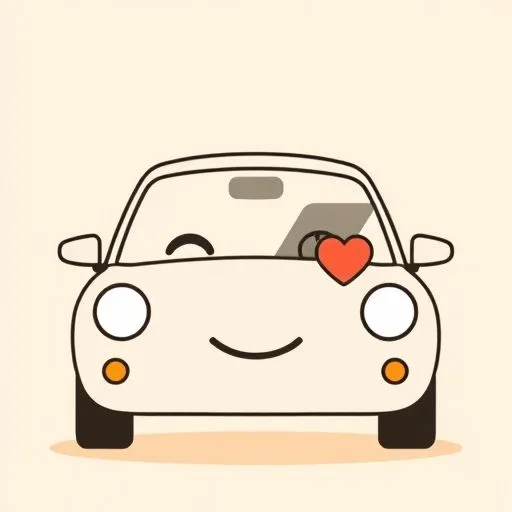
Remember how she keeps that emergency flashlight in the junk drawer—there when needed, but never overshadowing the warm glow of table lamps? That’s how we’ve approached tools like ChatGPT for parenting.
When our youngest kept asking ‘why is the sky blue?’ for the 37th Tuesday in a row at 6:47AM, pulling up a kid-friendly science explanation gave her five minutes to sip coffee while it was still hot. But we noticed—and maybe you’ve felt this too—that handing the tablet over too quickly dimmed that sparkle in his eyes when discovering something with us.
The sweet spot? Using AI like that flashlight—durable, reliable, but always remembering where the real light comes from.
Safety Rails Without the Caged Feeling
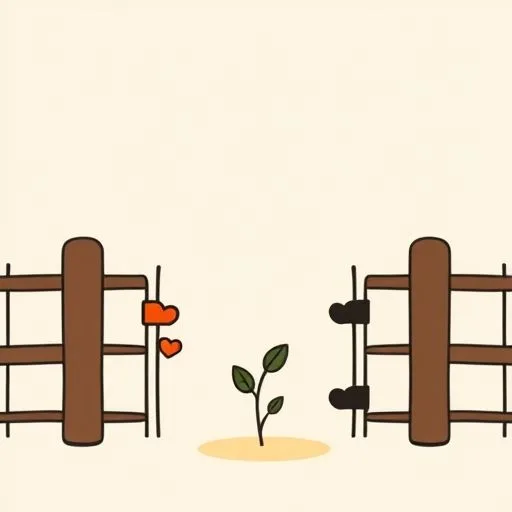
She had this look last week—that particular blend of relief and unease when our tween showed her a perfectly cited school report generated with a homework helper. ‘It’s safer than random websites,’ she murmured, but her grip tightened on that coffee mug.
That’s when we dug into parental controls together. Did you know ChatGPT now lets you review conversation histories? Or that Gemini has content filters you can adjust by age? (Source: Firewalls Are Old-School: AI Needs New Approaches, Forbes, 2025-10-01)
We set up shared review sessions—not as jailers checking cell bars, but like chefs tasting a new recipe together. ‘Show me how you got this answer’ became our new kitchen table mantra. Turns out, guiding their AI use builds the same muscles as teaching them to cross streets safely—watchfulness without suffocation.
When Homework Help Meets Emotional Support
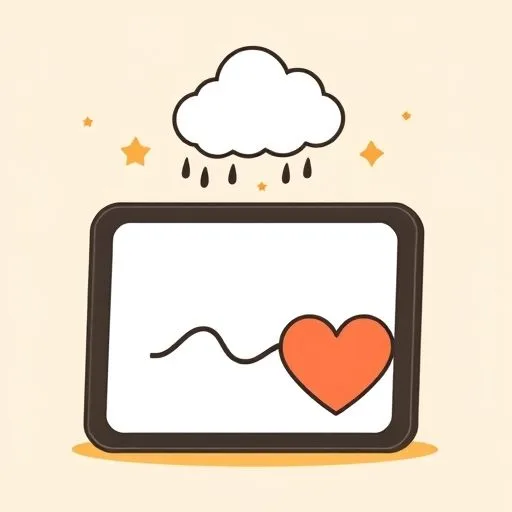
Homework stress colliding with evening fatigue—we’ve all witnessed that storm. One evening, after a particularly rough homework session, I found her whispering to her phone: ‘How do other parents handle frustration during homework meltdowns?’
The AI’s suggestions weren’t magic. But seeing ‘Take three breaths before responding’ in neat text gave her pause. Sometimes it’s easier to accept wisdom from a neutral screen than from your own weary reflection at midnight.
We started curating helpful prompts together—’phrases for frustrated kids’ or ‘age-appropriate chores’—saving them like digital sticky notes on our shared cloud. Not scripts to follow blindly, but life jackets when the parenting waves get choppy.
Keeping the Humanity in the Algorithm
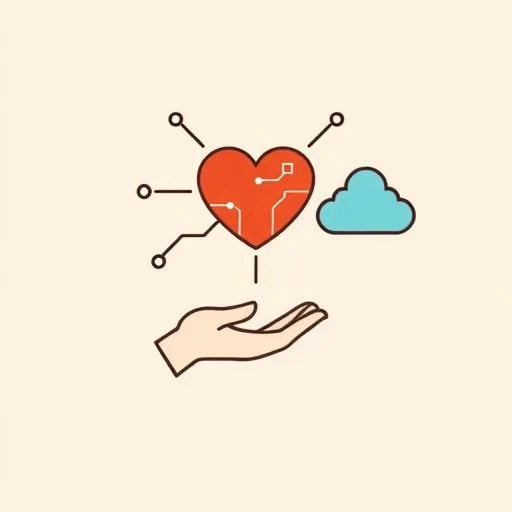
Last Saturday, I overheard our youngest ask Google Assistant if it was proud of his drawing. That quiet moment—the slight lag before the cheerful monotone replied—pierced right through me.
Later, over folded laundry, she voiced what we both felt: ‘I don’t want their emotional benchmarks set by servers.’ So we made rules: tech answers facts, we answer hearts. Weather forecasts? AI’s job. Why Grandma’s voice sounds sad sometimes? Our job.
And when they seek validation, we redirect: ‘Tell me why you’re proud of that drawing.’
It’s become our compass—division of labor that leaves room for scraped knees and hard talks under shared blankets.
That Quiet Click When Balance Finds Its Groove
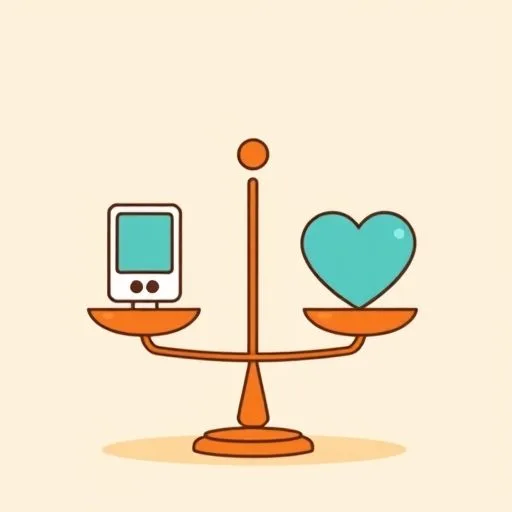
Here’s what surprised us most—the way small boundaries around AI created more space for spontaneous humanity. Because ChatGPT handles the monthly meal plan (whether it’s kimchi jjigae or pizza night), she has brain space to let the kids invent ‘mystery soup night.’ Since Gemini proofreads their book reports, we reclaim evenings for reading aloud with terrible pirate voices.
The gift isn’t the tech itself—it’s the reclaimed hours where her laugh lines deepen during sidewalk chalk art instead of stress lines forming over forgotten permission slips.
Isn’t that what we’re all chasing? Not outsourcing parenthood, but outsourcing the noise so we can better hear their heartbeat—and our own.
